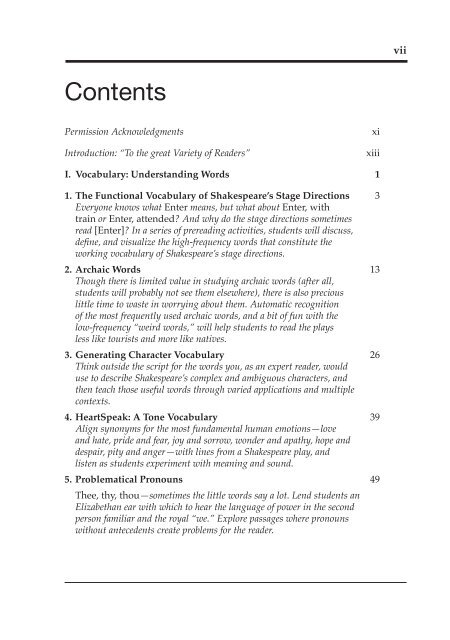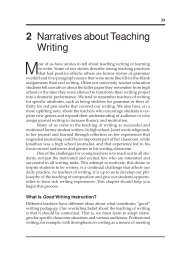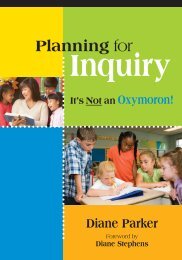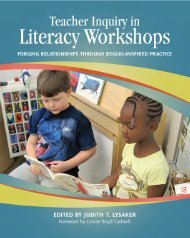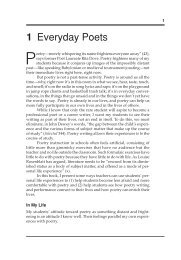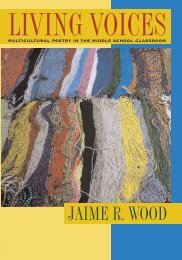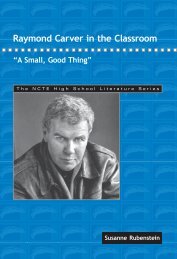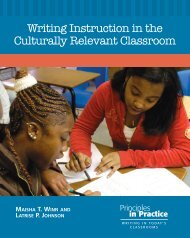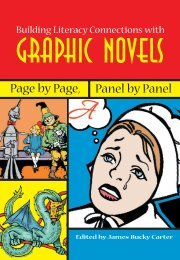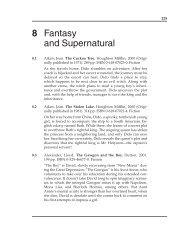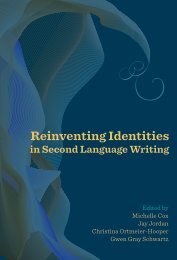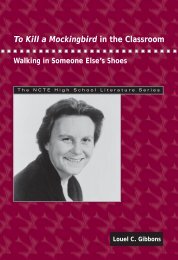reading Shakespeare
reading Shakespeare
reading Shakespeare
You also want an ePaper? Increase the reach of your titles
YUMPU automatically turns print PDFs into web optimized ePapers that Google loves.
Introduction<br />
vii<br />
Contents<br />
Permission Acknowledgments<br />
Introduction: “To the great Variety of Readers”<br />
xi<br />
xiii<br />
I. Vocabulary: Understanding Words 1<br />
1. The Functional Vocabulary of <strong>Shakespeare</strong>’s Stage Directions 3<br />
Everyone knows what Enter means, but what about Enter, with<br />
train or Enter, attended And why do the stage directions sometimes<br />
read [Enter] In a series of pre<strong>reading</strong> activities, students will discuss,<br />
define, and visualize the high-frequency words that constitute the<br />
working vocabulary of <strong>Shakespeare</strong>’s stage directions.<br />
2. Archaic Words 13<br />
Though there is limited value in studying archaic words (after all,<br />
students will probably not see them elsewhere), there is also precious<br />
little time to waste in worrying about them. Automatic recognition<br />
of the most frequently used archaic words, and a bit of fun with the<br />
low-frequency “weird words,” will help students to read the plays<br />
less like tourists and more like natives.<br />
3. Generating Character Vocabulary 26<br />
Think outside the script for the words you, as an expert reader, would<br />
use to describe <strong>Shakespeare</strong>’s complex and ambiguous characters, and<br />
then teach those useful words through varied applications and multiple<br />
contexts.<br />
4. HeartSpeak: A Tone Vocabulary 39<br />
Align synonyms for the most fundamental human emotions—love<br />
and hate, pride and fear, joy and sorrow, wonder and apathy, hope and<br />
despair, pity and anger—with lines from a <strong>Shakespeare</strong> play, and<br />
listen as students experiment with meaning and sound.<br />
5. Problematical Pronouns 49<br />
Thee, thy, thou—sometimes the little words say a lot. Lend students an<br />
Elizabethan ear with which to hear the language of power in the second<br />
person familiar and the royal “we.” Explore passages where pronouns<br />
without antecedents create problems for the reader.


